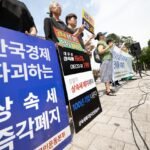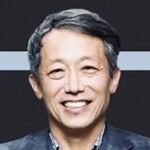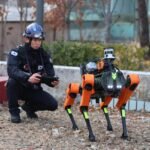Kamala Harris (AP via Yonhap)
Defense companies will stand to gain the most among South Korean companies if US Vice President Kamala Harris wins the US presidential election next month a, found a study released by a state-run research institute on Monday.
The Democratic Party presidential candidate is expected to strengthen military alliances with NATO allies to contain the influence of China and Russia, which will lead to an increase in maintenance, repair and operation orders, particularly for outdated US naval ships, said the Korea Institute for Industrial Economicsand Trade (KIET).
Automobile and battery makers are also expected to benefit from policies to be implemented by Harris as US president, KIET said in a research report analyzing the risks and opportunities posed by the Nov. 5 US presidential election result by scenario.
In comparison, if Donald Trump beats her to enter his second presidential term, semiconductor companies such as Samsung Electronics Co. and SK Hynix Inc. will gain a new momentum from his export controls to China. But other sectors will be exposed to increased policy uncertaintiy under the Republican Party presidential candidate, said KIET.
He is expected to put all-out pressure on not only China’s high-tech semiconductor companies but also smartphone manufacturers such as Huawei and Xiaomi.
Considering that the CHIPS Act was drafted during Trump’s term, he will be unlikely to cut subsidies and tax credits for corporate investments in the US, said KIET.
Donald Trump and Kamala Harris during a presidential debate in Philadelphia in September
In terms of policy predictability, it will be a boon for South Korea if Vice President Harris succeeds the Joe Biden administration.
Harris is expected to keep the Inflation Reduction Act (IRA) and subsidies for electric vehicles intact, and maintain the current levels of tariffs on automobile imports. The Democratic Party presidential candidate is expected to seek to stabilize the global battery and EV value chains.
In contrast, Trump has said he may end tax credit for EVs and levy up to 100% tariffs on vehicles manufactured outside the US.
The two candidates agreed on the need for curbing China’s influence, but differ in proposed policy efforts to achive the goal.
Harris wants to contain exports to China mainly for high-tech industries and reduce its reliance on China’s supply chain in so-called de-risking strategy.
Trump is pursuing de-coupling to completely separate China from global supply chains.
“The US policy aimed at slowing down the technological catch-up by Chinese semiconductor companies would benefit South Korean companies.”
In contrast, steel and chemical industries, blamed for carbon emissions, will be under pressure from climate change measures under Harris. Trump promised tariffs on foreign steel and chemical products to resuscitate the US manufacturing industries.
“The global trade order centered on China is coming to an end and all major countries are forming new value chains,” said Jung Eun-min, a senior researcher at KIET.
“We need to establish a supply chain that does not depend on a specific country and to discover and foster irresplaceable industries,” she added.
By Jeong-Soo Hwang
hjs@hankyung.com
Yeonhee Kim edited this article















